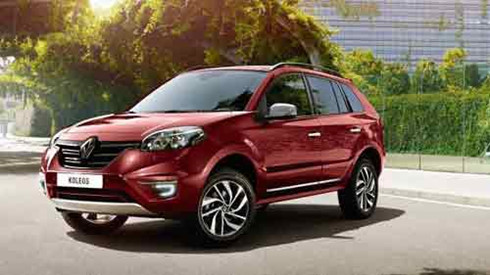European automakers are welcoming the European Union-Vietnam Free Trade Agreement’s slashed tariffs, expected to take effect in early 2018, as a key step towards boosting imports to and investment in Vietnam’s rapidly-growing auto market.

Bruno Angelet, Ambassador and Head of the Delegation of the European Union to Vietnam, told VIR that “the European Union-Vietnam Free Trade Agreement (EVFTA) will help EU automakers expand their auto exports and investment in Vietnam.”
“The EVFTA will offer slashed import tariffs for automobiles, so auto prices will be far cheaper in Vietnam,” Angelet added.
Under the EVFTA, Vietnam will eliminate duties on imports of EU cars with small-and medium-sized engines- which now face tariffs of 70-78%-over 10 years following the deal’s coming into force.
Vietnamese duties on trucks will also take about ten years to phase out. These tariffs range from 65% on models under five tonnes to 10% for trucks weighing 24-45 tonnes.
For cars with larger engines (3.0L for gasoline, 2.5L for diesel), the timeline for tariff removal is nine years. Car parts will also be duty-free after seven years.
Xavier Coiffard, general director of France’s Auto Motors Vietnam, the exclusive importer of Renault cars for Vietnam, told VIR that Renault would greatly benefit from the EVFTA.
The current import tax for Renault’s completely-built units imported from Europe is 70%.
“We will find it much easier to import cars into Vietnam,” Coiffard said. “Local customers will have more options for EU automobiles thanks to the EVFTA.”
Renault’s sales revenue in Vietnam last year reached 8 million euros (US$9 million), and is expected to hit 20 million euros (US$22.6 million) this year. It is likely that Renault will consider directly manufacturing cars in Vietnam in the medium term, to benefit from the country’s FTAs.
Sweden’s Volvo is also planning to enter the Vietnamese auto market in order to take advantage of the EVFTA as well as the market’s rapid growth. The company’s plans to open two Volvo centres in Ho Chi Minh City and Hanoi in this year’s third quarter.
Euro Auto JSC, Volvo’s authorised importer and distributor in Vietnam, currently has 27 auto agents in the country and will conduct marketing and selling activities as well as other services for Volvo cars.
Yoshihisa Maruta, chairman of the Vietnam Automobile Manufacturers’ Association (VAMA) and president of Toyota Vietnam (TMV), told VIR that Vietnam’s automobile market had great potential.
“I believe with its many FTAs, Vietnam will have both opportunities and obstacles. For importers, the FTAs are a good chance to expand their business and it will be easier for consumers to choose and own a car in the time to come,” Maruta said.
However, he declined to provide more details on the level of interest in the EVFTA shown by VAMA’s member companies.
“VAMA members include both local manufacturers as well as foreign firms from Japan, the Republic of Korea, the US, and Europe. We therefore cannot say generally whether VAMA members will see benefits or not,” he said.
Last year, Vietnam’s total auto market sales hit nearly 245,000 units, up 55% year-on-year, VAMA sales accounted for around 209,000 of this, up 56% year-on-year. Completely knocked-down (CKD) products occupied 75% of the market.
In this year’s first quarter, total sales hit almost 60,000 units, up 23% year-on-year, of which CKD products comprised 78%. It is expected that the total sales figure for the year will reach 260,000.
VIR